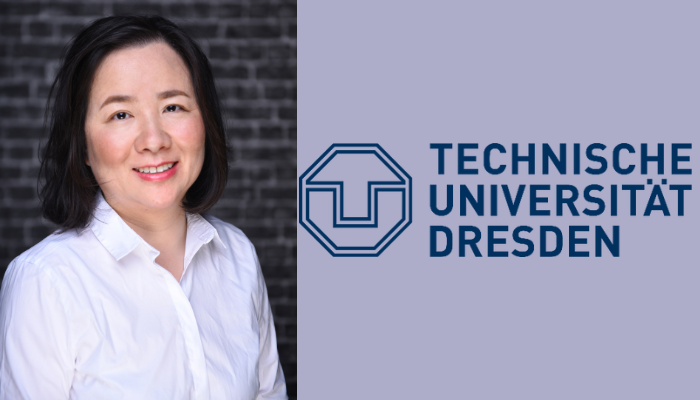Hi, I’m Xiaoping, and I lead the Green Technology in Building group at the Institute of Building Climatology of TU Dresden. My primary focus lies in the application of green technologies in building sector across various spatial scales, spanning from individual buildings to neighbourhoods, cities, and regions. Our aim is to advocate for the adoption of critical raw material-free materials, enhance operational durability, optimize life cycle performance, and enhance environmental quality while ensuring affordability for users. In GREENCAP we focus on life cycle analyses and the assessment of environmental and socio-economic impacts.
What was your original motivation to become a researcher?
My initial drive to pursue a research career stemmed from my passion for promoting sustainable urban development. Even though I did not clearly express this motivation when I made the crucial decision to leave my job at a renowned international architecture practice in Shanghai in 2004 and embark on my PhD journey, it was the driving force that propelled me forward. During my time as an architect in Shanghai, I had the opportunity to work on various exciting projects, ranging from residential neighbourhoods of several hundred hectares to complex hotels, shopping and office complexes. However, they all had one thing in common: they took place on greenfield sites. Although this was emblematic of China’s burgeoning urban development at the time, I have concerns about its long-term sustainability and its impact on society. This question, coupled with a burning desire to explore alternative paths to urban development, led me back into academia and eventually initiated my move into research.
What is your (main) research area today?
My current research focuses on green technologies in building, aiming to leverage material innovation and digitalization to drive sustainable development in the built environment. By fostering cross-disciplinary collaborations, I seek to develop breakthrough solutions that enhance the resilience, resource efficiency, and livability of our built environment.
What is the main objective of your team in GREENCAP?
The primary objective of our team in GREENCAP is to anchor innovative technological research near industry and society through impact assessment. By generating evidence-based knowledge on life cycle, environmental, and socio-economic impacts, we aim to facilitate the integration of cutting-edge technologies into real-world applications.
What expertise and facilities does your team have to meet those objectives?
Our team possesses extensive experience in impact assessments, garnered through participation in numerous national and international projects. With access to state-of-the-art facilities, we are equipped to conduct comprehensive evaluations that inform decision-making and drive sustainable innovation.
Which aspects of your research at GREENCAP do you believe are the most innovative and what unique opportunities offer GREENCAP to yourself and/or your organisation?
The innovative aspect of GREENCAP lies in the development of CRM-free supercapacitors, which hold immense potential for energy storage applications. Our participation in the project presents a unique opportunity to explore the integration of these technologies into building sector, paving the way for sustainable energy solutions in the built environment.
How do you see the future use of the GREENCAP-results and the impact of GREENCAP-project in our daily lives?
The results of the GREENCAP project hold immense potential to mitigate the environmental footprint of energy consumption while empowering individuals and communities with cleaner and more accessible energy solutions by offering sustainable energy solutions that are both environmentally friendly and technologically advanced. I see that GREENCAP can open doors to a myriad of applications, ranging from energy storage in consumer electronics to integration into smart grid systems. These supercapacitors can enhance the efficiency and reliability of renewable energy sources, thus accelerating the transition towards a greener and more sustainable future. In particular, I see the impact of GREENCAP extends beyond technological advancements; it paves the way for interdisciplinary collaborations and knowledge-sharing, fostering innovation in various sectors and driving socio-economic growth.

